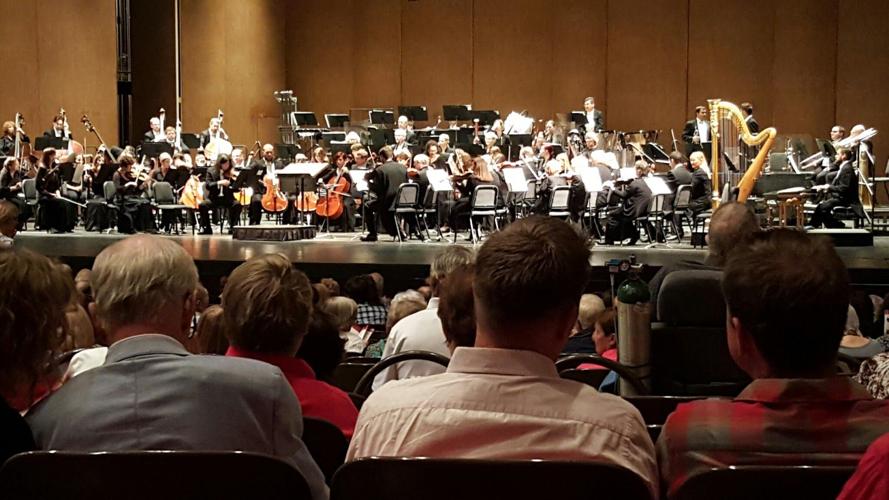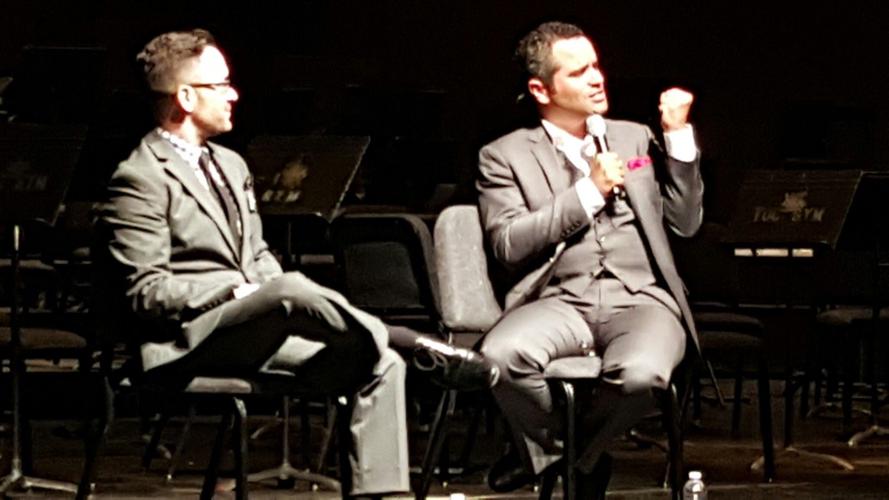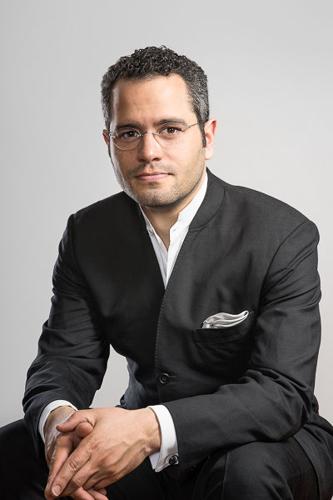Tucson Symphony Orchestra opened its 2015-16 season Friday night with the first of nine guest conductors vying to be the orchestra's next music director and conductor. Andrew Grams, 38, music director of the Elgin Symphony Orchestra in Illinois, was at the podium for "Rachmaninoff Dance, Copland Romance."
Here's a look at his performance based on three criteria: the music, his work at the podium and the audience reaction.
The program: Grams paired Rachmaninoff's popular "Symphonic Dances" — last performed by the TSO at the end of its 2005-06 season — with two works that were new to the orchestra: Elgar's "In the South" and Copland's Suite from "The Tender Land," two songs taken from Copland's only opera of the same name.
On the scale of bravery, give Grams the big trophy: springing two works that the audience had presumably never heard was a courageous act. Of course, we are talking about Elgar, a beloved 19th century English composer who's fairly well known and often performed; and Copland, arguably one of America's most revered composers. It wasn't a stretch to think the audience would enthusiastically go along for the ride.
The two scenes Grams picked from "The Tender Land" — the raucous and spirited "Party Scene" and the glorious "Finale: The Promise of Living" — proved that point with resounding applause from the Tucson Music Hall audience of about 1,050.
The podium pitch: Grams has said he is the cheerleader who empowers the musicians to "imbue the music with everything that they have to give.” That was on full display Friday night. He coaxed the musicians to create a sound so crisp that every nuance was unmistakable. Strings soared with elegance during the Elgar; Concertmaster Lauren Roth performed with clarity and power in a deciding solo turn; Ann Weaver's viola solo soared.
Grams is animated at the podium, bouncing on his toes at times when the music moved him, alternating hand and arm gestures between smooth balletic sways to power punches when he brought in the percussion section for the "Symphonic Dances" finale. And all the while, he smiled a big "I-got-your-back" smile that prompted the orchestra to perform with such wonderfully clean lines and clarity. The orchestra was, in a word, terrific.
The personality: During a quick address to the audience at the end of the Elgar, Grams cupped his hands over his eyes and squinted out into the hall: "Oh, there's a good crowd tonight," he said.
He then told the audience what to expect from the Copland piece, two songs from the opera that opera conductors would play quietly to allow the vocalists to shine. Since there were no vocalists Friday night, Grams said he wanted the orchestra to play it loud: they did. Not heavy-metal rock loud, but with the energy of a rock band that brought Copland's "Party Scene" to life.
But his defining connection with the crowd came at the end of the Rachmaninoff first movement, when a few folks in the audience applauded. Classical music etiquette of old dictates you save your applause for the end of the piece, not the end of the movement. But Grams turned to the audience and bowed to acknowledge the applause, prompting a few laughs in the hall and on the stage.
The orchestra had barely finished "Symphonic Dances" when nearly every one in the hall got on their feet for a prolonged standing ovation. Grams bowed and then turned the attention squarely on the orchestra, pointing out sections including the woodwinds, brass and percussion for praise.
Grams returns to the TSO in March to conduct Carl Orff's choral masterpiece "Carmina Burana."






